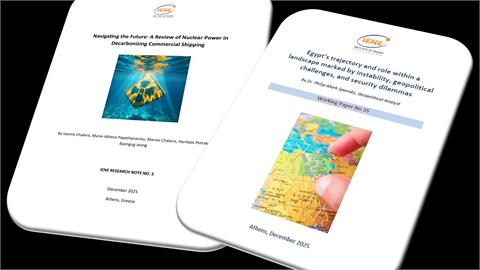Whether in the form of forthcoming hydrocarbon exploration by Turkey's TPAO in offshore areas as defined by last November's agreement between Libya and Turkey, which has hence been pronounced illegal by Greece as it infringes its EEZ, or through the efforts of Libya's National Oil Corporation to resume full scale oil production, oil continues to play key role in regional geopolitics.
This was one of the main themes explored in IENE's latest Geopolitics Bulletin (No.16) which was published earlier this week (21/7) and send to all members of the Institute.
Other topics included Turkey's increasing involvement in Libya as it tries to intensify its support for the Tripoli- based Government of National Accord (GNA) in its effort to expand its territory and take control of the town of Sirte and Jufra. This has lead to the scaling up of the conflict between GNA and General Halifa Haftar's Libyan National Army (LNA) with the bombing and severe damage by unidentifiable aircraft of Turkish controlled al- Watiya air base in the western part of the country being the latest episode. As the Bulletin notes, "regional concern over Libya remains high. Turkey sees it as the linchpin of a strategic foray into central Mediterranean, where it hopes to search undersea for oil and gas...."
Other topics covered in this bimonthly IENE Bulletin included the economic implosion of Lebanon, the global economy and how the continuing recession as a result of Covid-19 helps worsens the debt situation of many countries,the callous state of many oil majors as the price of oil has suffered huge losses since the start of the year as demand has plummeted and how the European Commission seeks new budgetary powers. The growing rift between China and the USA over pursued trade policies and EU's disenchantment over Chinesepropaganda about the coronavirus was another key area examined.
The next edition of the Geopolitics Bulletin will be published at the end of September.




